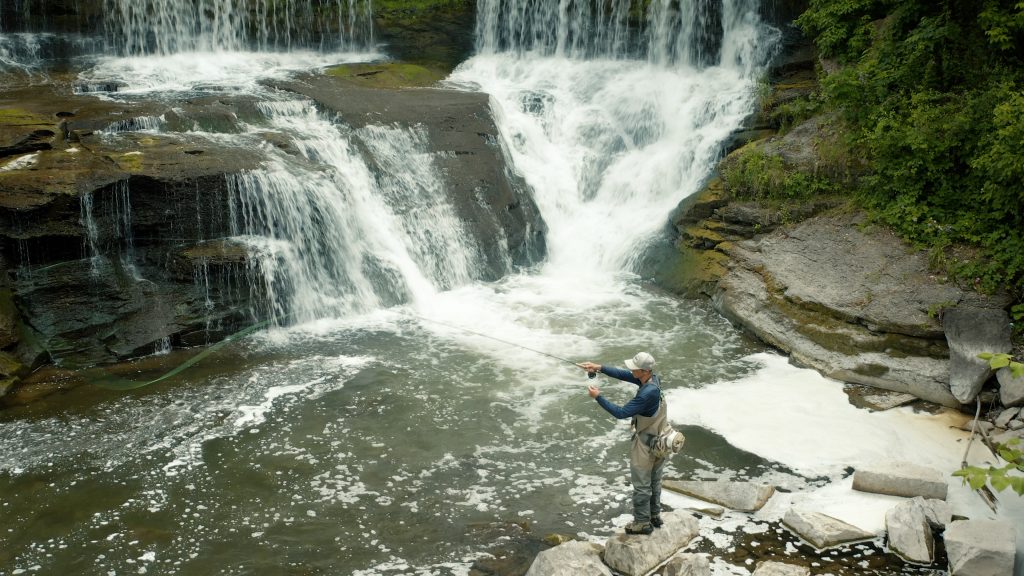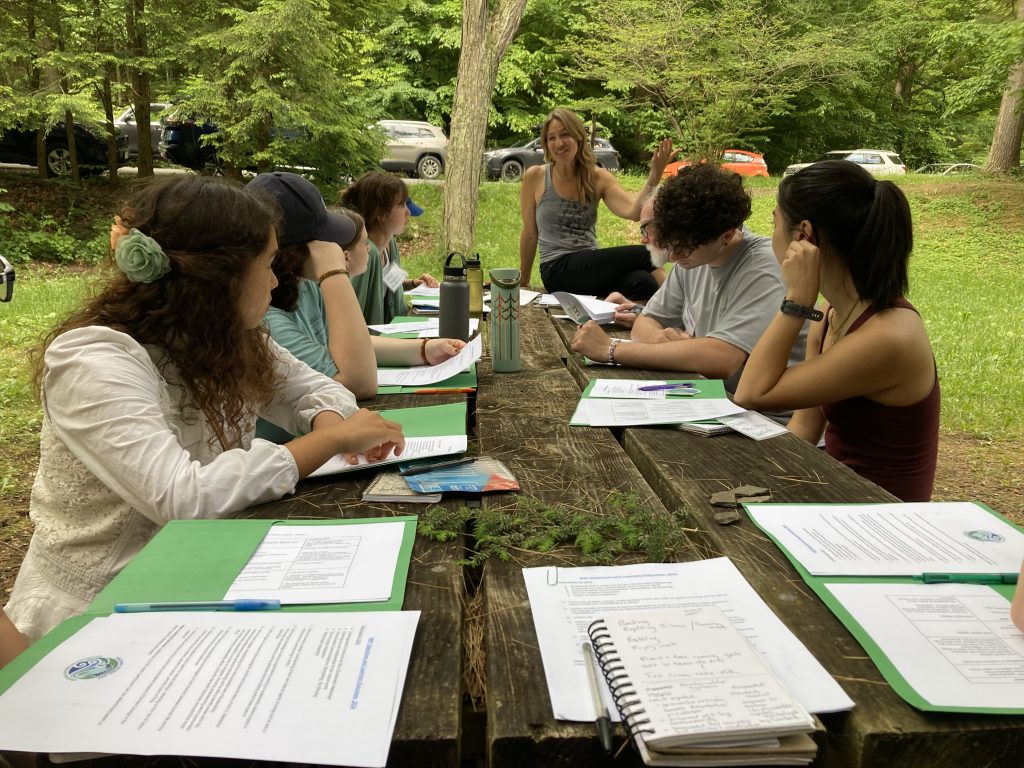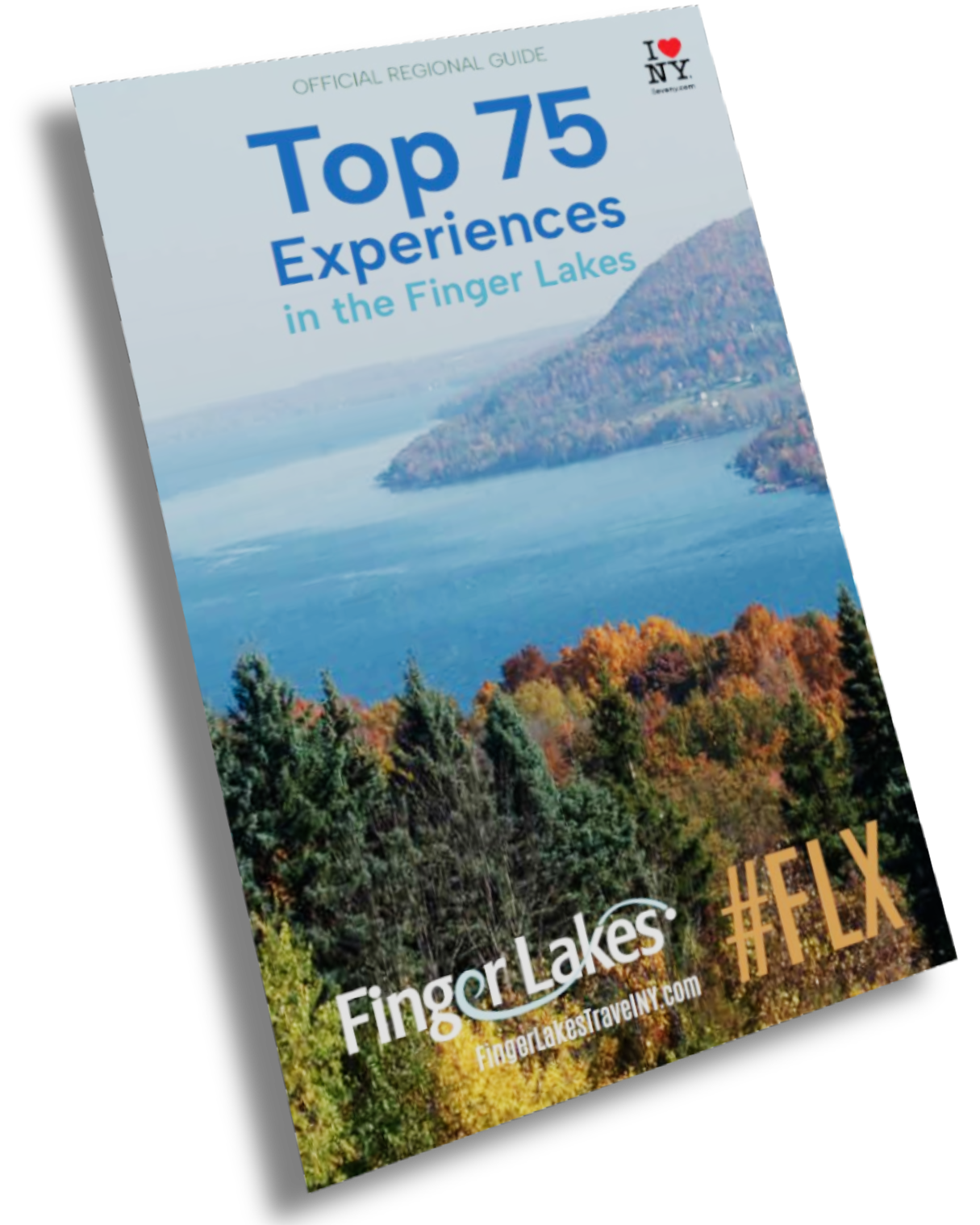
Angers Are Angling
To Keep the Finger Lakes Clean & Sparkling
The Finger Lakes look clean and pristine, but the truth is that they are struggling to maintain their clarity and their healthy nutrient balance. Pollution from storm water runoff and other sources is starting to shift the lake waters out of balance while fish and other lake fauna and flora are also feeling the multiple impacts of microplastics and invasive species. Many local organizations (including nonprofits, municipalities, higher education organizations, and state agencies) are working hard to keep our lakes clean and our fish populations healthy. We welcome stewardship-minded anglers to join us in this noble and necessary work.
Finger Lakes PRISM: Stopping Threats Before They Spread
While many organizations work to restore and protect the lakes once problems arise, the Finger Lakes Partnership for Regional Invasive Species Management (PRISM) focuses on stopping new threats before they take hold. Led by Coordinator Sam Beck-Andersen at the Finger Lakes Institute of Hobart and William Smith Colleges, PRISM coordinates prevention programs, research, and education across the entire region. In an article on Fingerlakes1.com, Sam explains,
“We want to put the power into the hands of the public so that
they know what they can do to stop the spread of invasive species
and where they can essentially help us
in our battle to prevent invasive species.”
For anglers, PRISM’s message is straightforward: invasive species like hydrilla, starry stonewort, and round goby don’t just appear: they hitch rides on boats, boots, nets, and even fishing tackle. Once introduced, these species compete with native fish for food and spawning grounds, alter habitats, and can permanently change the balance of a lake.
That’s why PRISM’s Watercraft Steward Program is such a game-changer. Stationed at popular launches, trained stewards inspect and help clean boats and educate visitors about the “Clean, Drain, Dry” protocol. Their work has intercepted thousands of pieces of invasive plant and animal material before they could spread to another waterbody. PRISM also encourages anglers to report unusual plant or animal sightings, dispose of bait responsibly, and share prevention tips with others.
Discover Cayuga Lake‘s Role in Protecting What We Love
On Cayuga Lake, one nonprofit has been making water science personal for more than two decades; in recent years, that work has expanded under the leadership of Astrid Jirka, Director of Tourism Initiatives at Discover Cayuga Lake. Astrid has dedicated herself to creating opportunities for all to experience, learn about, and advocate for the preservation of Cayuga Lake, a vital resource in the Finger Lakes region for both recreation and drinking water.
Astrid sums up her philosophy simply:
“When people have a positive experience with the lake,
they begin to care about it. That connection is the
first step toward protecting it for future generations.”
Astrid’s approach addresses a very real and somewhat surprising problem: despite the lake’s size and importance to the area, public access is limited and transportation barriers keep many local residents from even seeing the lake. In fact, some kids growing up nearby don’t even realize the lake exists. Astrid’s programs are breaking down those barriers through free or low-cost cruises for locals, where passengers can learn about lake ecology, fishing history, indigenous food traditions, and local conservation efforts

One of Discover Cayuga Lakes’ standout projects, the Cayuga Lake Watershed Internship Program, mentors young adults pursuing environmental science, justice, and management careers. Interns work alongside scientists and educators, gaining hands-on skills while contributing to ongoing water-quality monitoring. These efforts directly benefit anglers by keeping track of threats like harmful algal blooms, invasive species, and microplastics.
For visitors, the organization’s eco-tours offer a rare chance to step aboard the “Floating Classroom,” participate in water sampling, view plankton under a microscope, or see invasive species up close. These experiences not only connect people to the lake but also generate revenue to support educational programs and community access initiatives. PRISM’s work pairs perfectly with that of Discover Cayuga Lake: PRISM ensures fewer new threats get into the water, while Discover Cayuga Lake builds the personal connection and public awareness that make people care enough to protect it. Together, they’re safeguarding the future of fishing and the lakes themselves for generations to come.
Checklist: How You Can Help Protect the Finger Lakes
Before You Arrive
- Pack only clean, dry gear (e.g., boots, waders, nets, tackle boxes, etc.).
- Use lead-free and non-toxic tackle to reduce water contamination.
At the Launch
- “Clean, Drain, Dry” your boat, kayak, or paddleboard before and after use in each lake.
- Remove all visible plant or animal material from your boat’s hull, trailer, and motor.
On the Water
- Do not release unused bait species into the lake.
- Respect seasonal and size limits to keep fish populations sustainable.
When You Leave
- Rinse and dry all equipment for at least 48 hours before visiting another waterbody.
- Dispose of fishing line in designated bins because monofilament can entangle and kill wildlife.
All Season Long
- Report invasive species sightings to Finger Lakes PRISM.
- Support local guides and outfitters who follow conservation best practices.
- Share what you’ve learned: the more anglers know, the better off our lakes will be.



